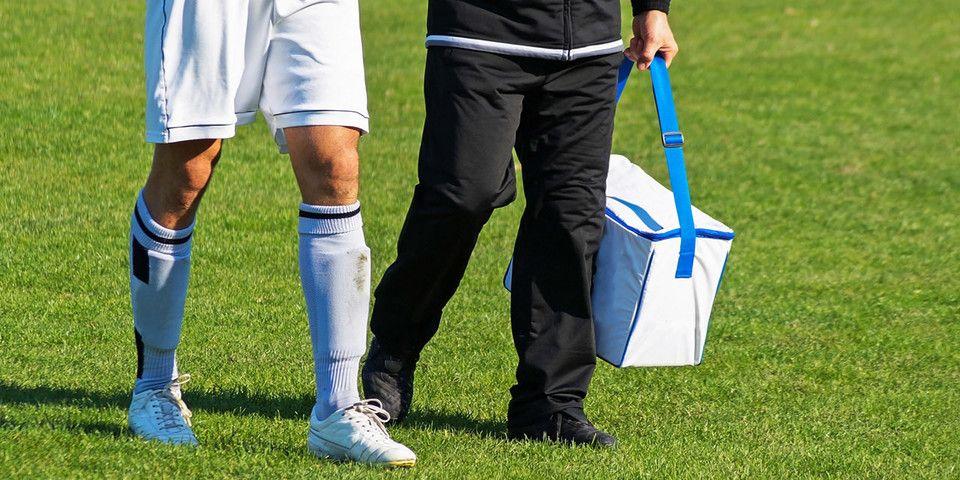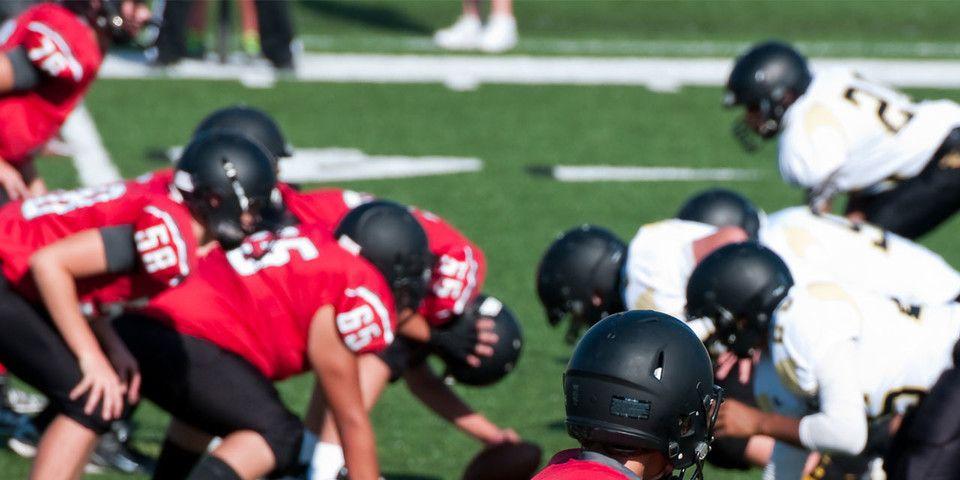The FAQs of Heat Stroke in Football Players
Heat stroke is extremely dangerous and must be treated immediately.
Heat injuries are a variety conditions resulting from heat stress, ranging from minor to severe. Heat illness in athletes is common, and football players in particular, whose athletic season often begins in the heat of late summer, are at risk for heat injury up to and including its most severe form, heat stroke. If you or someone you love is at risk for football-related heat stroke, Rothman Orthopaedic Institute provides the following comprehensive guide to the condition and its most commonly asked questions.
What Is Heat Stroke?
Heat stroke is the most severe form of heat injury, and is medically defined as a core body temperature above 104 degrees F. It is brought on by excessive dehydration and/or salt and mineral depletion as the result of prolonged activity in high heat and humidity conditions. During heat stroke, the athlete’s body cannot regulate its own temperature, which constitutes and acute medical emergency.
What Are The Symptoms?
Symptoms of heat stroke include nausea, seizures, and confusion or disorientation, as well as potential unconsciousness and coma. Heat stroke may occur as a progression from more minor forms of heat injury such as heat cramps and heat exhaustion, or with no preceding signs of heat injury at all.
How Is It Treated?
This is an acute medical emergency and should be treated immediately by:
-
Calling 911 immediately for emergency services
-
Decreasing core body temperature through immersion in an ice bath
-
Removing as much clothing as possible
-
Laying the athlete on the ground and raising his/her legs about 12”
-
Applying ice packs to the armpits, groin, and neck areas
-
Continue cooling efforts until the emergency crew arrives
What’s The Difference Between Heat Stroke and Other Heat Injuries?
Heat injuries exist in varying levels, with heat stroke being the most severe. In other forms of heat injuries (heat cramps, heat exhaustion, and heat syncope), the body’s core temperature crests at about 104 degrees Fahrenheit and stops there. During heat stroke, however, the athlete’s temperature may reach 106 degrees or more as the body ceases to be able to regulate its temperature. This can result in organ damage or failure, which is why it must be treated as a medical emergency.
How Can I Prevent Heat Stroke?
Heat stroke in athletes is typically caused by a combination of hot and/or humid conditions, prolonged strenuous activity, clothing that restricts the evaporation of sweat, inadequate adaptation to the heat, and/or lack of physical fitness. All forms of heat injury are preventable by taking the following precautions before, during, and after each practice and event:
-
Increase the intensity and duration of your exercise program gradually over a period of 7 to 10 days.
-
Ensure access to shade and cold water baths during each practice and event.
-
Ensure you are well hydrated before, during, and after exercise. Drink 24 ounces of non-caffeinated liquid two hours before strenuous activity, and break for an 8 oz. cup of water every 20 minutes, even if you do not actively feel thirsty.
-
Monitor the color of your urine. The darker your urine, the less hydrated you are and the greater your risk for heat injury, so drink enough fluids to keep your urine a very light color.
-
Wear lightweight and lightly colored clothing.
-
Monitor your weight before and after activities to gauge water loss. Make sure you have replaced fluids before your next exercise session.
-
Schedule outdoor exercise during the coolest time of day (typically early morning or after sunset). Strongly consider postponing or canceling intense activity during conditions of extreme heat and humidity.
The first step for anyone with signs and symptoms of heat stroke or other football-related conditions should be to consult a medical professional right away. When you need more specialized treatment, the experts at Rothman Orthopaedic Institute can help you decide which options are right for you.
Call Rothman Orthopaedic Institute today to schedule an appointment at 800-321-9999.
Related Physicians
Related Specialties
Related Programs
-

Athletic Training- Sport Medicine Outreach
Our Field Athletic Trainers provide direct sports medicine care to youth, high school, college and professional athletes. Rothman AT’s provide athletic training services throughout Southeastern PA to interscholastic high schools, colleges, as well as tournaments and special events.Read More -

Injury Prevention Program
The Injury Prevention Program at the Rothman Orthopaedic Institute is dedicated to the prevention of injuries from athletic participation, particularly youth sports.Read More




